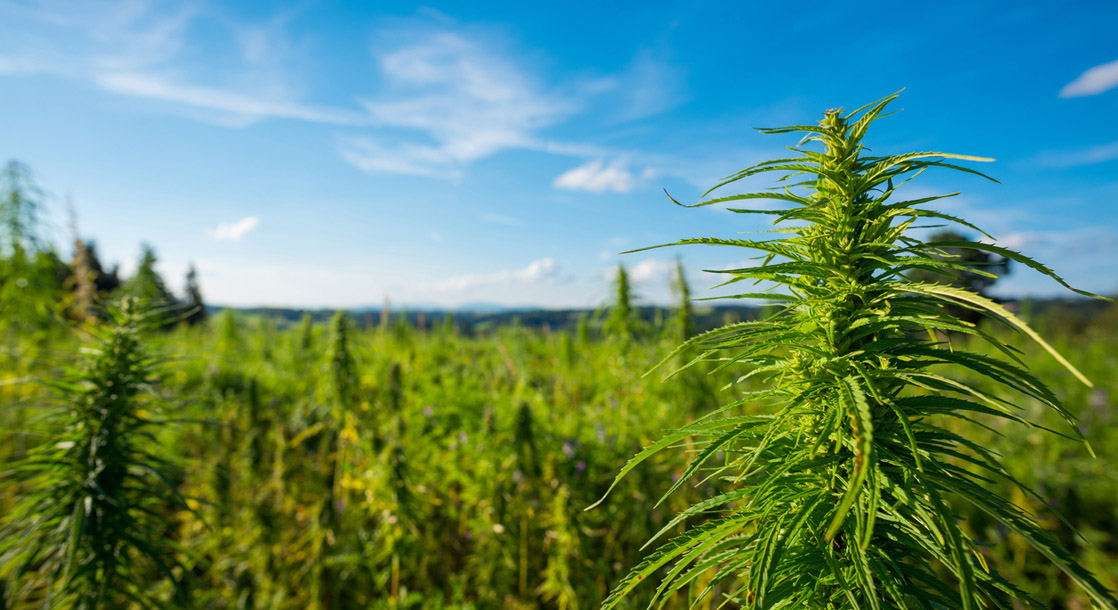A Native American nation in Northeastern Maine may soon transform a former US Air Force base into a massive cannabis plantation. But instead of harvesting this pot for profit, the tribe is hoping to use these plants to naturally clean the soil of this highly polluted Superfund site.
In 1995, the US government decommissioned Loring Air Force Base in Limestone, Maine as part of a broader program to reorganize the country’s military bases. While in operation, this site became so heavily polluted by jet fuel, coal, and toxic chemicals that federal officials claimed it was “technically impractical” to clean it. For decades, the base remained empty, but in 2009, the feds returned 600 acres of this property to the Aroostook Band of Micmacs, a small tribe of Native Americans indigenous to Maine.
The land given to the Micmacs was one of the most polluted parts of the base, once home to a coal handling station and a tank farm that stored 13 million gallons of jet fuel. Government officials claimed that they cleaned the chemicals from the site before turning it over, but researchers found that the local soil and water remains heavily polluted. In particular, tests indicated high levels of perfluorooctanesulfonic acid (PFOS) and per- and polyfluoroalkyl substances (PFAS), toxic “forever chemicals” that can pose long-term health risks to humans, plants, and wildlife.
“Some of that land that was given to us by the Air Force was very questionable,” said Richard Silliboy, vice chief of the Micmac tribe, to the Bangor Daily News. “They say they did a lot of cleaning up, but no one really knows what their idea of cleaning up was.”
Researchers from the Maine Department of Environmental Protection (DEP) are now working to find solutions to clean this toxic site and other contaminated areas throughout the state. To come up with a solution, the state is partnering with Upland Grassroots, an organization that uses industrial hemp plants to clean polluted soil.
Cannabis plants have fast-growing roots that absorb toxins and chemicals from the soil, which are then stored in the plant or converted into harmless substances. This process, known as phytoremediation, has been used in Italy to successfully clean farmland tainted by chemical runoff from a steel plant.
The research team planted several small plots of industrial hemp on parts of the former Air Force base that were known to contain both PFAS and PFOS. Once the hemp was harvested, it was sent to the Connecticut Agricultural Experiment Station for analysis. Unfortunately, the size of the experiment was limited due to the fact that the groundwater on the site was too polluted to use. Researchers intend to conduct a larger experiment this summer.
If the experiment is a success, Maine may consider using hemp to clean polluted lands throughout the state. PFOS, PFAS, and other forever chemicals have contaminated soil and groundwater all over the state (and the entire world), and researchers have found dangerous concentrations of these toxins in deer meat, eggs, and milk produced by Maine farmers.
“The DEP is actively looking for ways to manage, treat, and dispose of PFAS in soils because there is no clear and cost-effective solution at this time,” said David Madore, the department’s deputy commissioner, to the Bangor Daily News. “With the research being done at Loring, hemp may turn out to be an option [and] we support this and other efforts to find a solution to the PFAS problem and welcome opportunities for future collaboration.”
Environmental officials plan to test 34 different municipalities around the state for PFAS contamination over the next 2 years. If local groundwater tests positive for toxins, the state will give local residents bottled water until appropriate filtration systems can be installed. And if the hemp experiments at the Loring site are a success, state officials have indicated that they would be open to planting fields of hemp to help keep the pollution in check.
“We have met with state environmental and agriculture officials to talk about hemp as a solution,” said Chelli Stanley, co-founder of Upland Grassroots, to the Bangor Daily News. “They are really interested and it’s amazing to me how proactive they are being in wanting to get this under control.”











